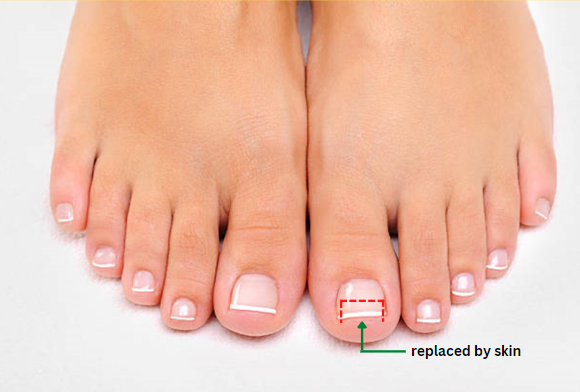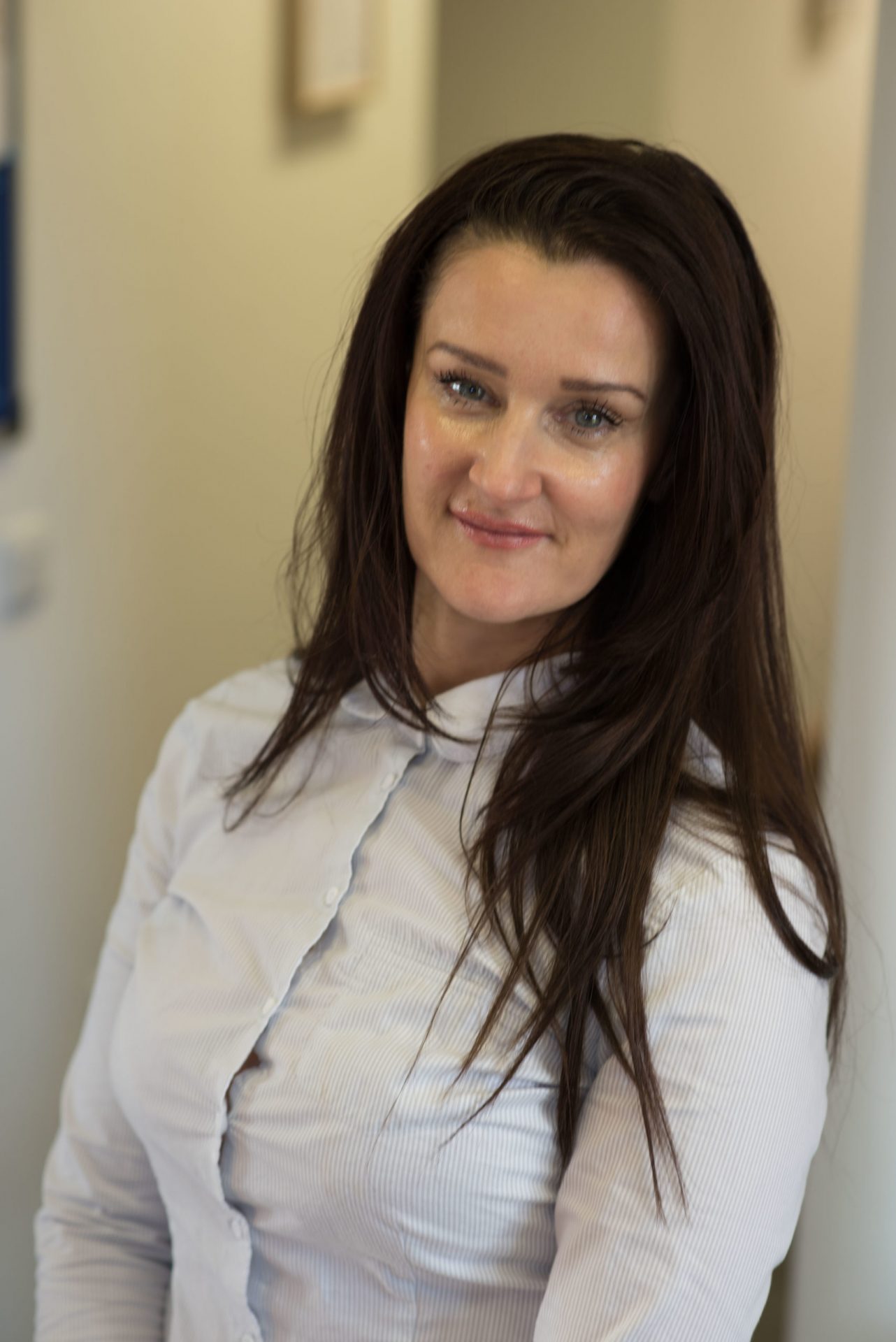What is a Disappearing Nail Bed Syndrome?
Disappearing Nail Bed Syndrome (DNBS) is a shortened or narrowed nail bed that is the result of a long standing onycholysis and on average tends to be between 20% and 25% shorter than the opposite non affected nail.
The nail may appear yellowish or white in color, or exhibit hyperkeratosis at the most distal edge. There might be a small bump or hypertrophy of the distal skin that deforms the distal tip of the toe. There is also a lack of nail growth when comparing one finger or toe nail as compared to the opposite equivalent other finger or toe nail.
It can also occur on fingernails but is most commonly seen at the big toenail such as stubbing injuries, catching the big toenail/clumsiness or being stepped on etc. The nail bed lacks the keratin proteins K1 and K10 that are common in normal skin, and there is no granular layer as seen on the epidermis of normal skin.
And did you know that onycholysis (separation between the nail plate and nail bed) can be a risk and/or an early sign of onychomycosis? But not all nails that present with onycholysis are mycotic fortunately.
What causes this condition?
It may be because of:
- Trauma
- Onychomycosis
- Onychogryphosis
- Biomechanics
- Other disorders that cause nail onycholysis such as psoriasis, lichen planus, and medications
- Regular overpicking
What are some treatment options for DNBS?
Conservative options include:
- Treating the ingrown nail
- ‘Taping’ the distal skin
- Using a ‘slither’ of cream that has up to a 40% urea content (*use as advised by your podiatrist)
- Wearing shoes that accommodate the the toe and toenail
- Treating dermatophytes (fungus)
- Avoiding overpicking
Surgical options can also be considered. The podiatric surgeon removes the nail’s unattached distal nail plate alongside a dental surgeon who creates a gingival graft and with this a new nail bed is created. Onychorrhexis is also a traumatic nail that we encounter in our patients.
Are you suffering from this condition? At The Chelsea Clinic, we can help. One of our podiatrist can assist and then recommend what treatments are best to get you back on track.  Podiatrist South Kensington
Podiatrist South Kensington
Schedule an appointment here or you may call us at +44 (0) 207 101 4000. 
We hope you have a feetastic day! 

-The Chelsea Clinic and Team


 Podiatrist South Kensington
Podiatrist South Kensington




